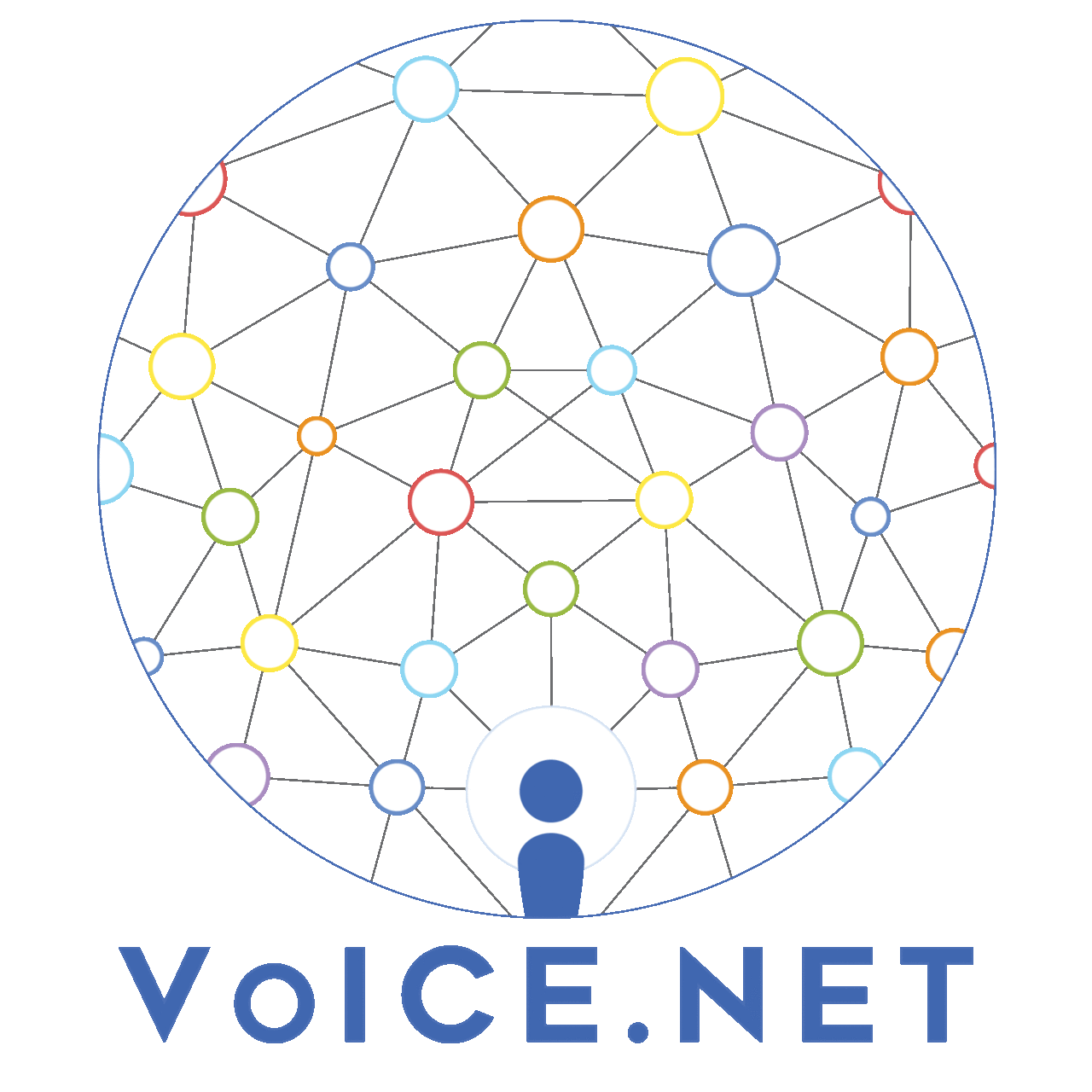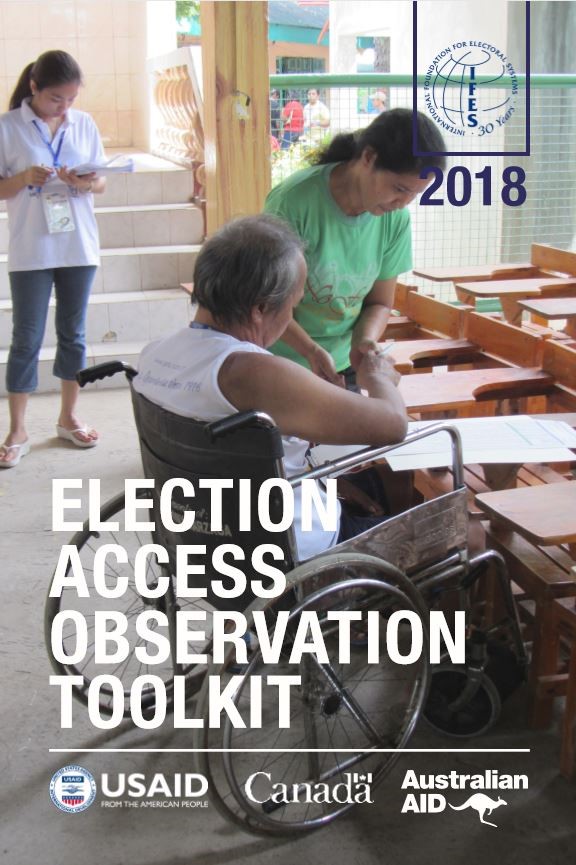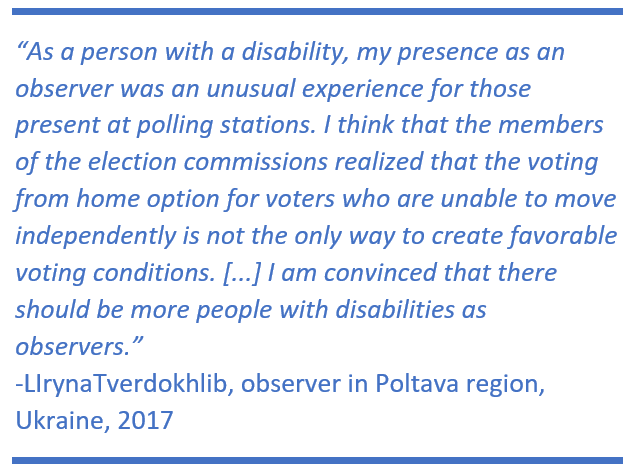
Global Knowledge Network On Voter Education - learning from each other
According to the World Health Organization, one out of every seven people in the world has a disability, yet citizens with disabilities remain underrepresented in political life as voters, election observers, candidates, and election officials. Mainstream observer groups often do not hire the people with disabilities to serve as observers and only include basic, if any, questions on access for people with disabilities in their checklists. To ensure elec¬tion observations account for the various barriers that women and men with disabilities encounter, the International Foundation for Electoral Systems (IFES), along with disabled person’s organization (DPO) partners around the world, has developed an Election Access Observation Toolkit.
 Drawing upon IFES’ experience conducting dozens of election access observations in countries around the world, and international and regional standards for inclusive elec¬tions, the Election Access Observation Toolkit provides DPOs and election observer groups with the background and tools to effectively incorporate a disability rights perspective into domestic and international observation mis¬sions. The toolkit, supported by the Australian Department of Foreign Affairs and Trade, United States Agency for International Devel¬opment and Global Affairs Canada, gathers lessons learned from election access observa¬tions conducted by IFES and DPOs in a wide range of country contexts, including Indonesia, Haiti and Kosovo.
Drawing upon IFES’ experience conducting dozens of election access observations in countries around the world, and international and regional standards for inclusive elec¬tions, the Election Access Observation Toolkit provides DPOs and election observer groups with the background and tools to effectively incorporate a disability rights perspective into domestic and international observation mis¬sions. The toolkit, supported by the Australian Department of Foreign Affairs and Trade, United States Agency for International Devel¬opment and Global Affairs Canada, gathers lessons learned from election access observa¬tions conducted by IFES and DPOs in a wide range of country contexts, including Indonesia, Haiti and Kosovo.
Legal Foundations for Election Access: The toolkit provides an overview of the international and regional frameworks that support the political rights of persons with disabilities, such as the United Nations Convention on the Rights of Persons with Disabilities and key court decisions, such as Kiss v. Hungary.
Making Election Observation Accessible: Providing reasonable accommodations to observers with disabilities is critical, to ensuring their inclusion in the process. The toolkit has examples of reasonable accommodations so that observation missions can include observers with physical, sensory, intellectual and psychosocial disabilities.
Election Access Observation Checklists: Sample checklists for long- and short-term election access observations provided in the toolkit can be contextualized by disability rights advocates. Long-term observation checklists include questions on the inclusion of persons with disabilities in voter registration, candidacy, voter education, and in the EMB. Short-term checklists focus on accessibility at polling stations on Election Day. Guidance for contextualizing both long- and short-term observation checklists to fit national laws is provided.

Questions for Mainstream Election Observation: The toolkit includes sample ques¬tions that can be used by international observer groups so that they can mainstream disability rights into their missions.